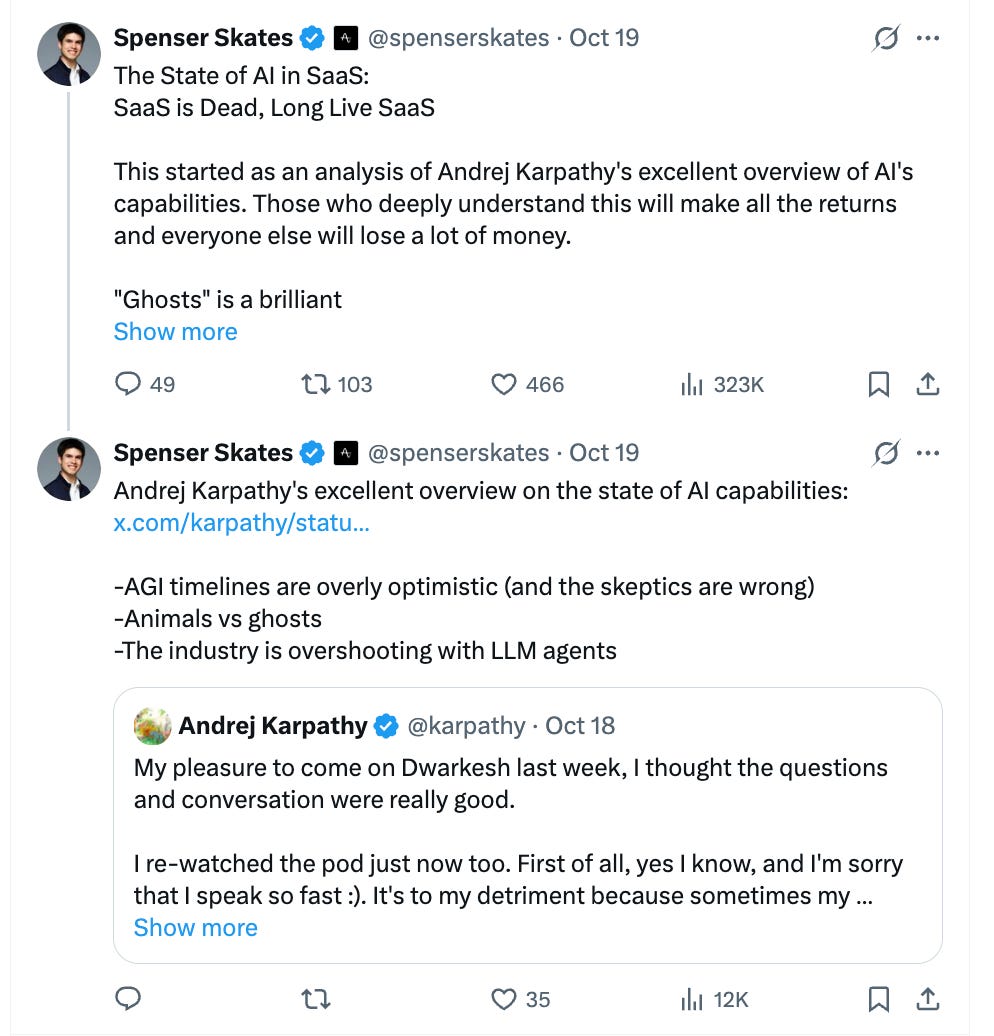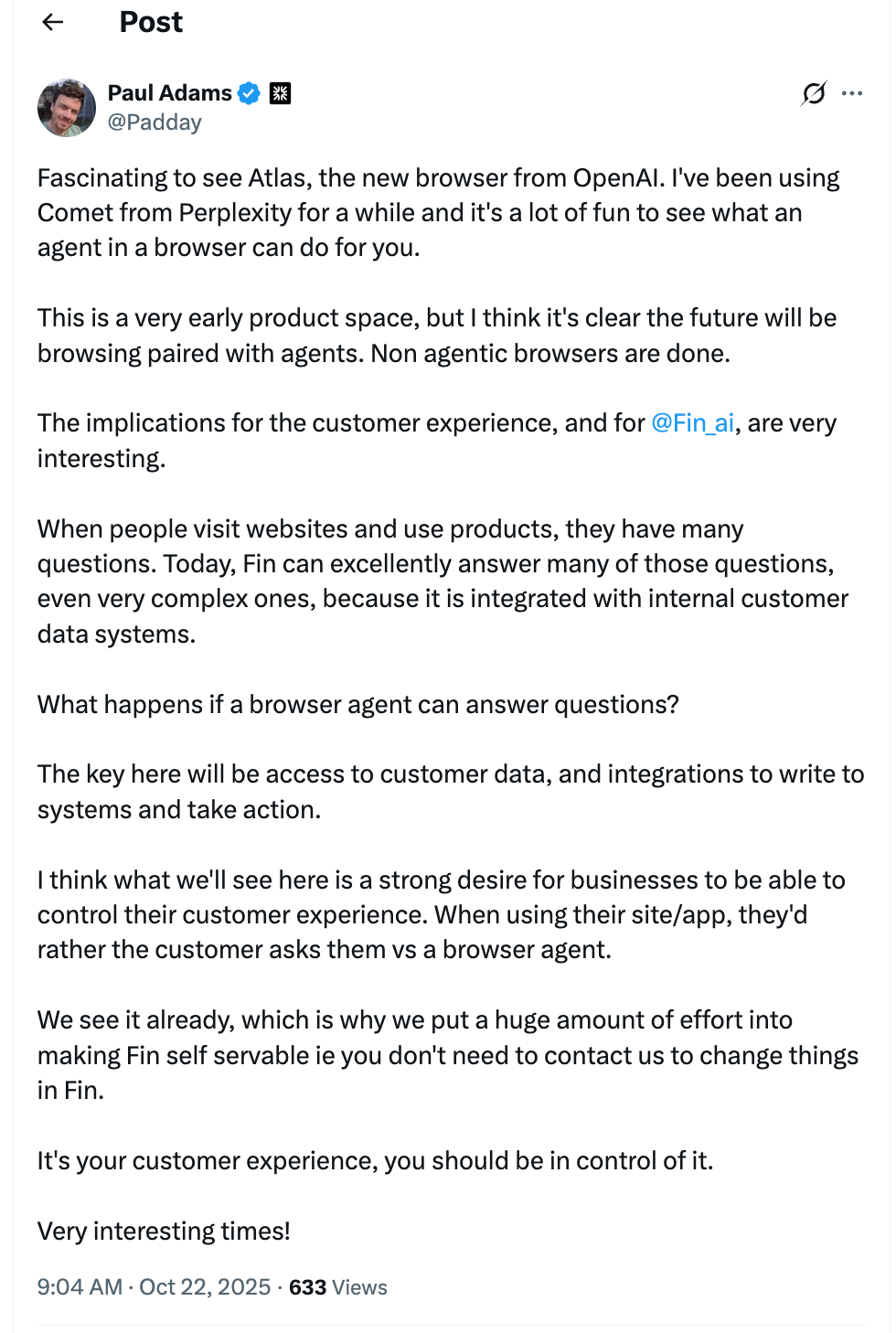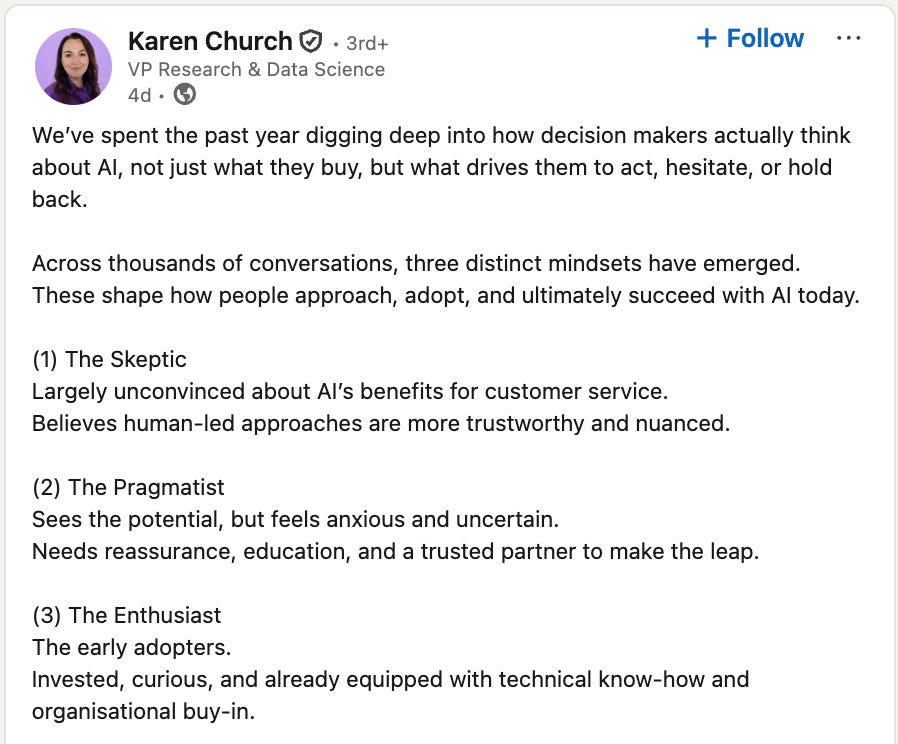Fin Sunday Edition #7
Boundaries? What boundaries?
AI is collapsing categories, commerce and LLMs are moving in together, design and research are exploring new horizons of craft and human psychology, and somehow we still had time for a vibe hackathon.
This week on Ideas
For decades, software followed the unbundling playbook — dozens of tools for every tiny niche. But, as Des put it,
“AI is going to reverse that trend.”
“Focus on the fundamentals”
Amplitude CEO Spenser Skates reminded everyone that the fundamentals still matter:
Paul then added his own take later in the week:
The design team got together to talk about design
(Their favorite topic). At an offsite this week, our design team swapped mini-talks on Fin Voice, AI as design partner, and Building with Cursor.
They started each line of inquiry with a question, such as:
How do designers use AI to extend their creative instincts without outsourcing them?
What they determined was that, while they’re focused on using AI for exploration and iteration — the messy middle of design — as human designers, they still lead on direction and taste.
A few shared vibe-coded prototypes built entirely in Cursor, like this cool example by Alina Berndt that reimagined our Messenger:
She called out that:
“Building real prototypes early helps everyone see what works — and what doesn’t.”
It was great to see the new rhythm of product design at Intercom in action, with faster loops, fewer assumptions, and more direct interaction with the tools themselves.
Here’s a reading list from the offsite:
A skeptic, a pragmatist and an enthusiast walk into a bar…
This week Karen Church, our VP of Research & Data Science, went deep on how humans actually think about AI, reflecting on the behavioural psychology behind customer trust and confidence:
A few outtakes — but do read the whole thing:
“[This] is a new kind of customer mindset — it’s how people think about, evaluate, and ultimately accept AI systems into their work and lives.”
She argued that successful AI products won’t just be judged on accuracy or speed, but on how understandable and empowering they feel to the people using them.
“We have to design for the gap between what AI can do and what people believe it can do.”
This is something that felt of a piece with our discussion in the design team this week— we’re seeing that humans stay in the loop not because they have to, but because they want to.
In the news
“Every company will have an AI store”
AI keeps moving closer to the checkout button. This week, Lovable launched its Shopify integration, promising that anyone can:
“Build, design, and launch a fully functional Shopify store just by talking to Lovable.”
Founder Elliot Lindberg put it simply:
“Lovable sets up checkout, adds your products, writes descriptions, and connects everything directly to Shopify. Anyone can start dropshipping and earning money online now — no excuses.”
AI infra hits Europe
OpenAI announced a major UK data-hosting expansion, opening its first European infrastructure hub.
“The partnership will establish OpenAI’s first UK data-hosting presence, enabling improved reliability and alignment with UK data protections.”
As Anthropic builds in Paris and OpenAI grows in London, is Europe becoming the lab for what “sovereign AI” looks like when governments and companies share infrastructure?
Our parting thought
What with all the breaking of silos and reimagining of use cases and roles, this week felt like a preview of The Great Convergence. We call it a preview—but really we’re deep in it already.
But in that convergence, the most valuable skills remain human ones: judgment, taste, and curiosity.
See you next Sunday.





